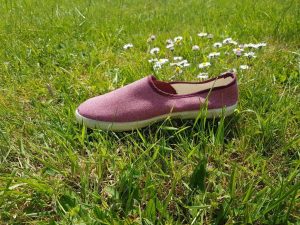
Actiplast will be the first to say it´s not easy finding bio-based raw materials that don´t compromise on quality and price. And that´s why they persist with their drive to innovate and develop those new materials to keep PVC on the cutting edge. For the sake of the planet.
“Industrial companies have a responsibility to society! Actiplast must invest for future generations!” says Agnès Lenoir CEO of Actiplast. “We truly think that PVC is not only a commodity, but also a fertile ground for innovation.”
Part of the Actiplast´s R&D team´s task is to adapt the raw materials to industry needs. “When you source vegetal fillers such as wood/hemp/flax fibres, producers of those fillers don´t necessarily know the plastics industry,” says Julien Berbuto, Actiplast´s R&D director. “They don´t always technically speak the same language. That´s where we come in.”
“Two centuries ago, we discovered PVC by accident. Today we no longer have to count on luck but on the will to innovate!” he adds.
Another task is testing potential materials. Producers of bio-based plasticisers can claim great properties and durability, but do they stand the test of time? “That´s why we check a lot of things in our own lab tests before anything,” Berbuto says.
Getting through Actiplast´s rigourous trials is just part of it. Then comes the cost factor, which is still a challenge. But the trend is clear, Lenoir says: “In the near future our bio-based PVC will become a standard PVC formulation.”
PVC proves itself versatile in the process, time and again, Berbuto says. “For one thing, you don´t need coupling agents for natural fillers in PVC, unlike polyolefins.”
Actiplast should know, as France’s leading independent supplier of PVC Compounds, used in extrusion and injection molding processing. Founded 35 years ago, it´s the first French compounder to be ISO 9001 certified, meaning it meets international standards for management and regulatory requirements. See their team at work here.
